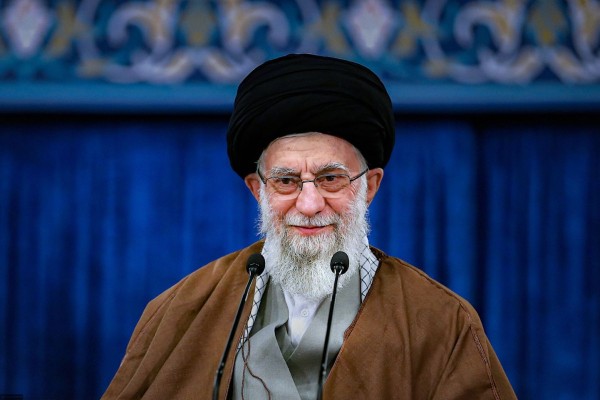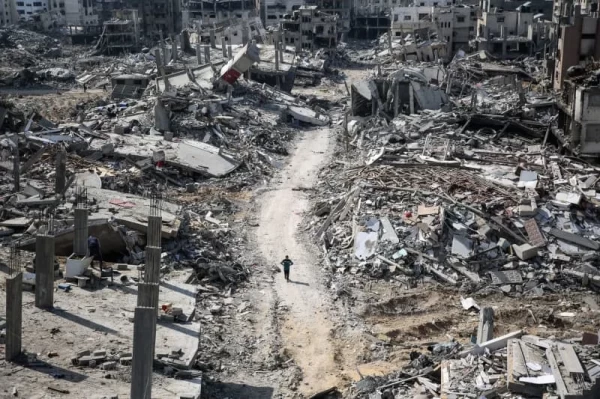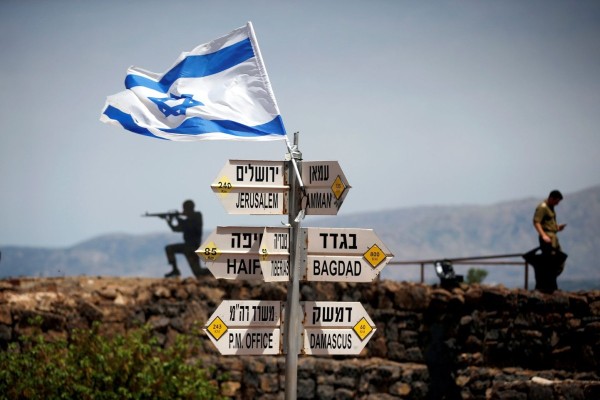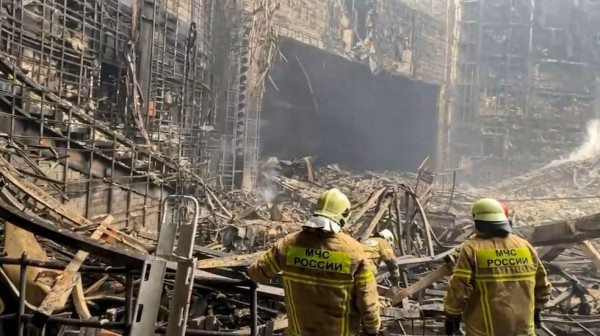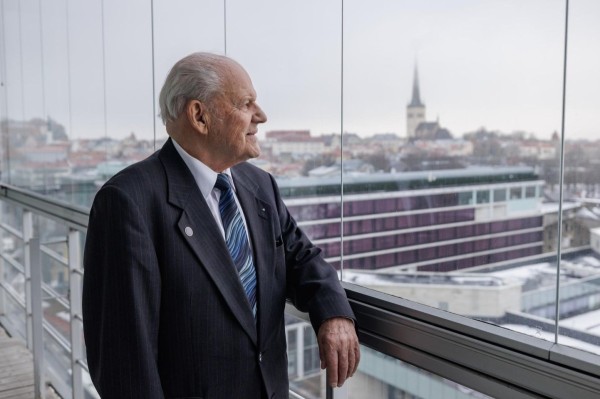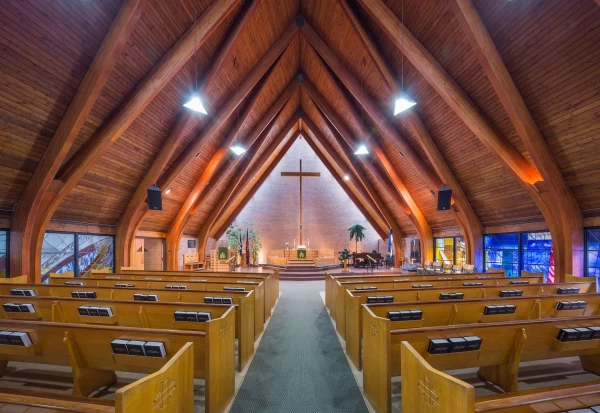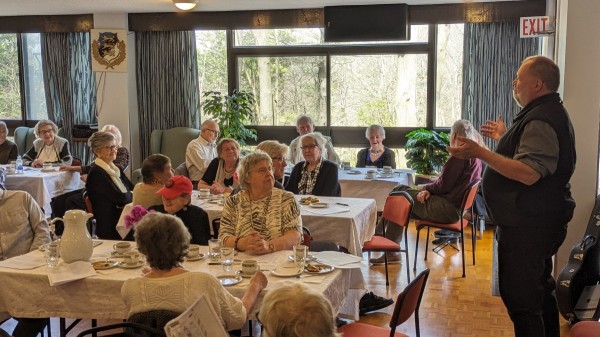It is historical idiocy to write off this war as 'incomprehensible slaughter'.
Frank Furedi, spiked
In any commemoration of a significant historical event, there will be a temptation to read history backwards and interpret the event through the sensibilities of our own era. So it is with the centenary of the First World War, which falls this year.
From the standpoint of contemporary British and Western culture, the global conflict of 1914-1918, which used to be given the label ‘the Great War’, simply makes no sense. More than any other modern catastrophe, this event is frequently described with words such as futile and incomprehensible. Indeed, it often seems that the First World War is even more perplexing today than it was 40, 50 or 80 years ago.
The political and cultural establishments of various societies simply don’t know how to commemorate this war. Many are evading meaningful commemoration altogether by organising relatively low key, innocuous, local events. In the words of Helen Grant, the UK minister for sport, tourism and equalities, ‘There’ll be massive national moments of remembrance and reflection and thousands of smaller projects bringing it alive for local communities’. There’s little appetite for the high-profile national events. Our leaders seem very keen to avoid any form of commemoration that comes across as patriotic, nationalistic, celebratory or triumphalist. A tone of hesitancy and embarrassment pervades the discussion of the First World War. The language used is neutral and value-free, full of terms like ‘remembering’ and ‘reflecting’. What the people are meant to be remembering is left deliberately vague.
For some, even remembrance is too provocative. The very act of commemorating a war is an act of militarism and a rehabilitation of the warrior ethos, some claim. A group of celebrities is spearheading something called the ‘No Glory Campaign’. Fronted by actors Jude Law and Alan Rickman and pop star Brian Eno, No Glory is planning to hold a concert at the Barbican. Eno says the Great War was ‘a total disaster that was unnecessary and destroyed a generation’. Who could disagree with such a banal statement about the past? Who would stand up and say, ‘Actually, the Great War was fantastic’? Maybe No Glory should rebrand itself as a campaign to state the bleeding obvious.
But there is, of course, no glory to campaign against. No one is waving the flag in this centenary year, and the UK government, like others, has gone out of its way to avoid saying anything positive or inspiring about the military aspect of the Great War. It is permissible to praise the ‘heroic’ everyday efforts of working people and women or of the animals that were used to transport soldiers to the battlefield; it’s not permissible to say anything positive about the politicians or military leaders who took part in the conflict. It is not the outlook of the nationalist historian but rather of the weary pacifist that will be affirmed by this year’s centenary events. When the UK Heritage Lottery Fund awarded £95,800 to the Peace Pledge Union to celebrate the war’s 16,000 conscientious objectors, it sent out a clear signal about what the commemoration will be like. The No Glory Campaign will just have to make do with kicking against an open door.
Times have changed. In previous eras, wars were commemorated as significant chapters in a nation’s history. Today, commemorations of past wars swiftly turn into self-conscious attempts to distance ourselves morally from the bad old days of aggressive militarism. This project of decoupling contemporary society from the ‘bad old days’ underpins the outlook of the No Glory Campaign. ‘What those of us involved in this are concerned about is that the war will be presented as something glorious and part of our national heritage, when it isn’t really’, says Eno. Actually, it is. Not even the most effective campaigner can make the past disappear. The Great War was not Britain’s finest moment, but, for better or for worse, it really is part of Britain’s national heritage.
A war in search of meaning
At a time when one commentator after another dwells on the catastrophic slaughter of the Great War, and tells us that ‘an entire generation was lost’, there is little point in repeating such a well-rehearsed narrative of incomprehensible madness. Not least because this idea of incomprehensibility really says more about twenty-first-century culture, and how it engages with the past, than it does about the First World War. The contemporary attitudes of cynicism, apathy and mistrust of any cause or belief have been eloquently recycled through the prism of the Great War, to the extent that the war now serves as little more than a cautionary tale about our current predicament.
Much of the narrative of incomprehensibility is actually wrong. The truth is that in the months leading up to the outbreak of war in 1914, millions of individuals welcomed war because they believed it would provide them with a cause that had true meaning. The willingness to put one’s life in harm’s way, and the spirit of sacrifice that led so many to volunteer for battle, showed that many young people in 1914 believed this was a cause worth fighting and potentially even dying for. There was, of course, powerful pressure to conform to the war effort, a pressure which sometimes verged on coercion – but in the early phase of the war at least, the level of public support for the conflict was remarkable.
For many working people who answered the call to arms, the war seemed to provide respite from the routine and drudgery of normal life. Although the first decade of the twentieth century was one of relative prosperity, Western societies struggled to endow life with purpose. The era often referred to as the Golden Age of Security was also one where young people and intellectuals felt disenchanted by the spiritual emptiness of their existences. In this moment of moral confusion, the drive towards war provided many disoriented individuals with the promise that there was something more to life than the dullness of their daily routines.
Stefan Zweig (1881-1942), the world-renowned Austrian novelist and playwright, and well-known pacifist, recalled with a hint of embarrassment the sense of excitement and celebration that the news of the impending conflict provoked among people in the summer of 1914. ‘[T]o be truthful, I must acknowledge that there was a majestic, rapturous, and even seductive something in this first outbreak of the people from which one could escape only with difficulty’, he observed. Such enthusiasm for the prospect of going off to fight a war is almost inconceivable to the contemporary imagination. A public response that appeared ‘majestic’ and ‘rapturous’ to Zweig is dismissed by today’s unhistorical observers as the irrational reaction of a media-manipulated and brainwashed people.
Well, if ordinary folk were brainwashed by subliminal propaganda, then so were the artists and the intellectuals of early twentieth-century Europe. One of the most astonishing phenomena in the lead-up to the Great War was the positivity with which artists and intellectuals greeted the conflict. This cause somehow caught the imagination of even this layer of society, on all sides of the conflict. So as one ‘father’ of sociology, Max Weber, put on his German Army uniform to greet dinner guests at his home, another ‘father’ of sociology, Émile Durkheim, played an active role in the preparation of French war propaganda. The German progressive novelist Thomas Mann personified the intellectual for whom the war promised to provide cultural and community life with some purpose and direction.
Today, when the Great War is mostly taught to young people through the bitter and demoralised language used by the war-weary poets Wilfred Owen and Siegfried Sassoon, it is easy to overlook the fact that that somewhat later phase of artistic despondency towards the war was preceded by one of enthusiastic hope. The patriotic poetry of Rupert Brookes or Jesse Pope no less captured the spirit of the times than did the works of the anti-war poets. Arguably, it was the poet Edward Thomas who most eloquently expressed the ambivalence that artists and intellectuals experienced at the outbreak of war. His powerful poem ‘This is no Case of Petty Right or Wrong’, written on Boxing Day 1915, reveals his own inner struggle to reconcile his support for Britain’s war effort with his distaste for the crude jingoism promoted by the press.
‘I hate not Germans, nor grow hot
With love of Englishmen, to please newspapers.’
Yet although he distanced himself from the simplistic chauvinistic propaganda that dominated the political sphere in 1915, still Thomas felt he had no choice but to take a stand for England. Affection for Britain, which he viewed as a moral cause as well as a country, coexisted in his poetry with an unambiguous hatred for the enemy. His Boxing Day poem concluded with the words:
‘But with the best and meanest Englishmen
I am one in crying, God save England, lest
We lose what never slaves and cattle blessed.
The ages made her that made us from dust:
She is all we know and live by, and we trust
She is good and must endure, loving her so:
And as we love ourselves we hate her foe.’
It is sometimes claimed that Thomas took the decision to enlist in the British Army in response to his very close friend Robert Frost’s criticism of his personal indecisiveness.
According to literary critics, Thomas believed that American poet Frost’s well-known poem ‘The Road Not Taken’ was written with the intention of mocking Thomas’s indecisiveness. Perhaps. Others focus on Thomas’s inner despair and emotional conflict to explain his actions during the war. This emphasis on psychology overlooks the point that, whatever his inner turmoil, Thomas expressed himself in a language that resonated with the artistic sensibility of the time. His poem expresses the kind of tenderness for England and its past that today would be dismissed as odd and out of touch. ‘She is good and must endure’, wrote Thomas, as he affirmed his love for his nation. It’s through his profession of love that Thomas can reconcile himself to the need to hate the enemy. His words ‘and as we love ourselves we hate her foe’ show the ease with which an entire generation of artists and intellectuals made the emotional leap on to the battlefield of Europe. Indeed, the casual manner in which ‘love’ mutated into its opposite is one of the disturbing features of the Great War.
At its outset, at least, the Great War succeeded in tapping into the creative and artistic resources of Western societies. Many intellectuals relished undertaking what they hoped would be a voyage of discovery. Theirs was a quest for meaning; many really believed that through the experience of this violent conflict they could gain clarity of purpose and an understanding of what they were made of. The poem ‘Two Julys’, by Charles John Beech Masefield, stands as a testimony of this sensibility:
‘I was so vague in 1914; tossed
Upon too many purposes, and worthless;
Moody; to this world or the other lost,
Essential nowhere; without calm and mirthless.
And now I have gained for many ends,
See my straight road stretch out so white, so slender,
That happy road, the road of all my friends,
Made glad with peace, and holy with surrender.
Proud, proud we fling to the winds of Time our token,
And in our need there wells in us the power,
Given England’s swords to keep her honour clean.
Which they shall be which pierce, and which be broken,
We know not, but we know that every hour
We must shine brighter, take an edge more keen.’
Masefield was by no means the only intellectual who traded in his sense of worthlessness for a view of ‘that happy road, the road of all my friends’. It seems they were all there on the battlefront. Masefield, like the now more familiar war poets Owen and Sassoon, fought alongside and against fellow artists and intellectuals. Which is why it is important to understand that the Great War was not simply about geopolitical rivalries. It was also a war of ideas, and, to a significant extent, a Culture War.
Culture War
The historian AJP Taylor has pointed out the significance of the mobilisation of ‘intellectual abilities’ in 1914 to win the propaganda war, which was also a battle of ideals. He pointed out that while Thomas Mann ‘demonstrated the superiority of German culture’, HG Wells ‘discovered that this was a war to end all wars’. Meanwhile, ‘historians proved, to their own satisfaction, the war guilt of the enemy and the innocence of their own country’, while ‘poets composed hymns of hate’.
There were very, very few honourable exceptions to this trend. ‘To those of us who still retain an irreconcilable animus against war, it has been a bitter experience to see the unanimity with which the American intellectuals have thrown their support to the use of war technique in the crisis in which America found herself’, wrote Randolph Bourne, the radical essayist. In his powerful essay of 1915, ‘The War and the Intellectuals’, Bourne condemned American intellectuals for their willing complicity in the promotion of war propaganda. What really disturbed him was the realisation that intellectuals were actually in the forefront of the advocacy of war. ‘They are now complacently asserting that it was they who effectively willed it, against the hesitation and dim perceptions of the American democratic masses’, said Bourne, before concluding that this conflict was ‘a war made deliberately by the intellectuals’.
Within a short period of time, however, many of the artists and intellectuals who had been so enthusiastic about the war realised that the conflict had, if anything, intensified all the problems it was meant to solve. The slaughter and destruction failed to endow their lives with meaning, and soon their enthusiasm gave way to bitterness and demoralisation. In part it was precisely because so much hope and emotion had been invested in the war that the later reaction to the Great War took such an intensely powerful moralistic form. In such circumstances, disappointment with the war, and with the continued absence of meaning in everyday life, often morphed into an irrational rejection of everything to do with the past.
From the standpoint of today, the cultural war conducted by artists and intellectuals in the early twentieth century can appear as a moment of madness – one which can thankfully be relegated to the ‘bad old days’. Twenty-first-century artists and intellectuals pride themselves on being indifferent to patriotic calls for sacrifice and hostile to nationalistic and xenophobic propaganda. With the exception of Muslim university graduates going off to join the jihad overseas, it is unlikely that modern Britain’s university students, intellectuals and artists would volunteer to fight to defend their nation. Although they can still construct arguments for striking at allegedly morally inferior societies – like Serbia, Libya or Syria – they always leave the actual fighting to others.
To be sure, the cultural wars of today are rarely conducted through the narrative of nationalism or the ethos of militarism. Instead, cultural conflicts are now justified through talk about certain ‘ways of life’ and claims to be upholding the values of ‘humanitarianism’. Such quasi-ethical appeals to fight ‘evil’ overseas may not resemble the patriotic appeals of the Great War, but their consequences can nonetheless be surprisingly lethal and destructive. Some intellectuals are no less interested in gaining moral clarity and purpose through war than their forebears were in 1914. Take the enthusiasm with which many of today’s intellectuals called for a military strike against the Serbs in the 1990s. ‘I have never been to Sarajevo’, wrote Salman Rushdie in 1994. ‘But I feel that I belong to it, in a way.’ Many other Western intellectuals in the 1990s focused their quest for meaning on the collapsing Balkans. Others have looked elsewhere. Bernard-Henri Lévy, the French philosopher, played a central role in convincing then French president Nicolas Sarkozy to intervene in Libya in 2011.
The absence of any serious interrogation of the consequences of Western humanitarian intervention coexists with a powerful mood of alienation from the legacy of the Great War. The wars of today involve little flag-waving and rarely attempt to glorify the battlefield or the ideal of sacrifice. When the drums of war start beating – as they did recently over Syria – they play to a tune that self-consciously eschews militaristic or nationalistic objectives. Western armies often adopt the guise of humanitarian social workers who are principally involved in protecting children, women and ‘vulnerable people’. But in a world where words like ‘mission creep’ reveal an underlying risk-averse unwillingness to take causes seriously, the drumbeat soon fades away – and the people of Syria, Libya, Afghanistan and elsewhere are left to pick up the pieces.
So when you are inundated with wall-to-wall commentary about the incomprehensible slaughter on the battlefields of Europe during the years 1914-1918, just remember that such statements say far more about our current moral and political predicament than they do about what occurred a century ago. The refusal to understand, far less empathise with, the sentiments and passions that provided the cultural underpinnings of the Great War does not make for a more enlightened world; it simply deprives living generations of the opportunity to appreciate the dangers inherent in politicising culture, as was done a century ago, and is still being done today.
January 8, 2014
Frank Furedi‘s First World War: Still No End in Sight is published by Bloomsbury this month. (Order this book from Amazon (UK).)
The Great War: a Battle for Meaning
Arvamus
TRENDING







